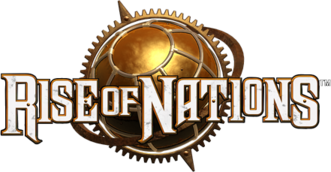| Age Overview | Units and Buildings | History |
The Modern Age is a period in human history which spans from the 20th century begining with the period after the end of First World War and ending with the advent of the Digital revolution. This period saw the improvement of contemporary weapons and technologies in the middle of the unstability and ravages of the Second World War, as the world began to move into a more technical, but more destructive age. Tanks and airplanes grew to dominate the battlefield. Warships, for centuries kings of the sea, were supplanted by the aircraft carrier, which proved its worth time and time again at engagements like Pearl Harbor and Midway. Finally, and most significantly, the atomic bomb- nuclear weaponry- was first developed and used during this period, ushering in the Cold War.
The Cold War was a half-century long age of distrust between the United States, supported by NATO, and the Soviet Union and its allies in the Warsaw Pact. Both suspected the motives of the other; the West despised the socialist Soviet Union, while the Soviets denounced the capitalistic West. A key hallmark of the Cold War was the new military technology available to combatants, namely nuclear weaponry. Both sides began only with atomic bombs dropped from bombers, but eventually enlarged their arsenals to the point where nuclear missiles could destroy all human civilization on Earth. Although Mutually Assured Destruction in the end ironically averted nuclear holocaust, it did not end conflict: there were still many wars waged between the two ideologies. However, instead of the plains of Western Europe, these conflicts took place in undeveloped countries where both the United States and Soviet Union hoped to spread their ideology. These wars included Korea, Vietnam, and almost led to direct nuclear confrontation in the Cuban Missile Crisis.
Outside of the tense nuclear situation, there were also iconic cultural revolutions throughout the world. The end of the Second World War led to the resumption of the civil war in China, creating the People's Republic of China. Led by Mao Zedong, the newly Communist China launched "the Cultural Revolution," among other programs designed to modernize China. Although they certainly managed to industrialize the primarily agricultural state, they did not come without a cost: millions of Chinese were either imprisoned or starved to death as a result of these reforms.
The modern era also saw the Civil Rights movement in the United States, which ended racial segregation which had persisted for a century after the conclusion of the American Civil War.
The ascendancy of America and Russia left most traditional powers in the dust. For example, the French, severely weakened and humiliated after World War II, was unable to stop the Vietnamese revolt in its Indochinese colonies. The British Empire also dissolved, as the United Kingdom's economy was left a shattered hulk after World War II. The era of decolonization left large power vacuums throughout the old European colonies; large regions of Africa remain unstable even to this day, while the old British colony of India fell into a religious civil war almost immediately after the British withdrew. India and Pakistan are still not reconciled, and a large threat exists that they may use nuclear weaponry against each other.
